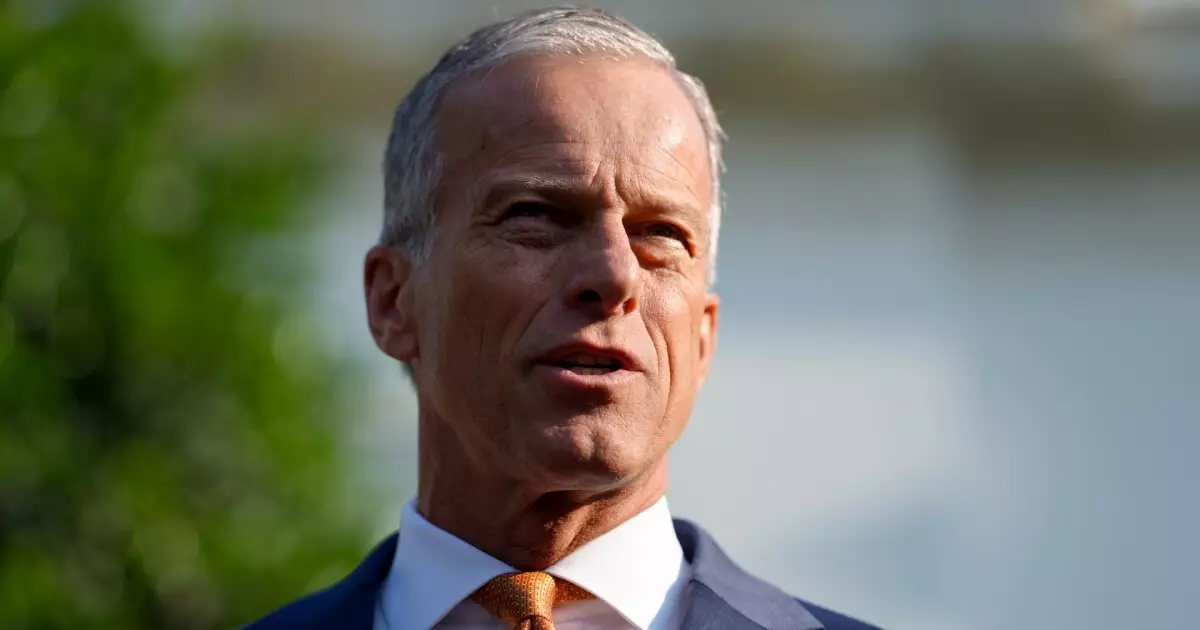At the heart of the contentious One Big Beautiful Bill Act (OBBBA) lies a significant shift in tax policy regarding the State and Local Tax (SALT) deduction. By suggesting to raise the cap from $10,000 to an impressive $40,000 for individuals earning under $500,000, House representatives seem to be making a politically motivated concession to GOP members from high-tax states. Unfortunately, this suggests an alarming trend that prioritizes special interests over sound fiscal policy and the wellbeing of our national economy. The Senate, led by Majority Leader John Thune, has already dismissed this proposal, stating that “there really isn’t a single Republican senator who cares much about the SALT issue.” This dismissal signals not only a divide within the GOP but raises concerns about the consequences of such a cap increase on the entire taxation system.
The Economics of Favoritism
The proposed SALT cap increase raises significant flags regarding economic fairness. Reducing the burden on affluent taxpayers disregards the fundamental principle of equitable taxation, placing an excessive strain on lower and middle-income earners who would ultimately bear the jarring impact of unpaid debts associated with these tax cuts. Tax Cuts benefiting the wealthy only exacerbate the disparity in our societal structure, driving a wedge further between socio-economic classes. The House bill is being touted as a means to garner bipartisan support, but in reality, it could lead to a bloat in the federal deficit by around $2.6 trillion over a decade, as highlighted in Garrett Watson’s analysis. This excessive expenditure could jeopardize the nation’s fiscal sustainability while prioritizing a select few.
Pass-Through Exemptions: An Eroding Safety Net
Introduced as a workaround, the pass-through exemptions (PTEs) not only signify a clever legislative maneuver but also highlight the deep-rooted structural issues within our tax code. As thirty-five states, along with New York City, craft legal loopholes to circumvent the SALT limitations, one must consider the long-term implications. These PTEs allow business owners to achieve tax credits that subject their income to state taxes while possibly undermining the motivations behind the original SALT cap. This development is alarming as it not only threatens the integrity of the tax system but also stands poised to clash with necessary revenue streams that facilitate local and state governance.
A Dangerous Budgetary Disconnect
The OBBBA has become a shining example of governmental dysfunction, wherein the urge to appease certain voting blocs has overshadowed the essential duty of fiscal responsibility. This disconnect is vividly illustrated through the proposals that exacerbate the federal deficit while ignoring the need for stricter budgetary measures. The National Taxpayer’s Union has cautioned against fostering loopholes that could further balloon the deficit while risking investments in critical sectors such as education, healthcare, and infrastructure. Overall, the proposed legislation is symptomatic of a broader issue in Washington, where short-term political gains often trump sustainable fiscal solutions.
The Future is at Stake
As the OBBBA progresses through legislative channels, it becomes increasingly apparent that substantial changes are needed to protect taxpayers from the fallout of poorly constructed tax policies. With the future of municipal bonds at stake and mounting pressure from advocacy groups to curb excessive governmental spend, it’s essential for legislators to adopt a more disciplined approach. The reality is that Americans deserve a tax system that prioritizes equity, efficiency, and minimal distortive impacts on both the economy and society.
The Political Divide’s Impact on Policy-making
It’s clear that the partisan divide in Washington is obstructing true reform aimed at alleviating tax burdens on everyday Americans. The hesitance within the Senate to consider the SALT cap reflects a deeper ideological rift that complicates bipartisan negotiations, casting a long shadow over the possibility of meaningful progress for all citizens. Efforts by the House to leverage the SALT adjustment as a bargaining chip may not only preserve inequities but also stifle the potential for comprehensive reform. As citizens grapple with the consequences of a polarized political landscape, it is critical to call for transparency and accountability among elected officials, pushing them to act in the best interest of their constituencies rather than catering to political whims.


Leave a Reply